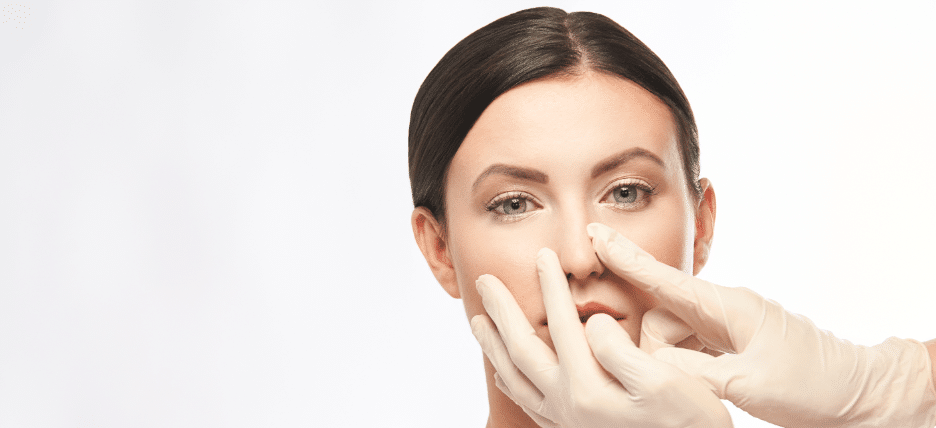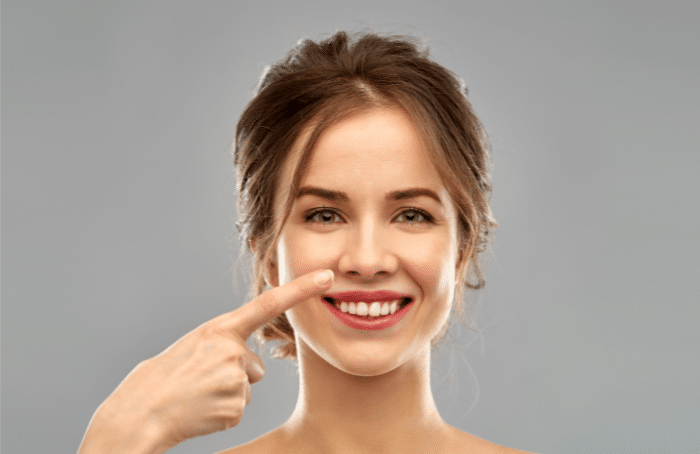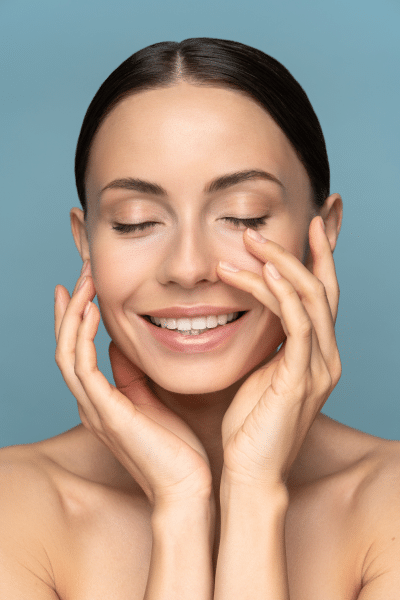
Although your rhinoplasty surgery itself will be the central determining factor when it comes to achieving great results, a smooth rhinoplasty recovery is nearly as important.
As you head into your rhinoplasty recovery time, always make sure you are diligently following your surgeon’s instructions and paying close attention to your symptoms and progress. Below, we’ve compiled a list of “do’s” and “don’ts” to help you on your recovery journey.
Top Do’s and Don’ts After Rhinoplasty
DO attend all of your follow-up appointments.
Along your rhinoplasty recovery timeline, you’ll have several appointments with your plastic surgeon to assess your progress. Be sure to bring any questions or concerns with you. As you heal, your surgeon will let you know when you can reincorporate your normal everyday activities.
DON’T smoke, vape, or drink alcohol.
The nicotine found in cigarettes and some vape products can restrict your blood flow. This will delay the healing process and can increase the possibility of post-surgery complications. Likewise, stay away from alcohol until you get the go-ahead from your surgeon. Alcohol does not promote a strong immune system and may prolong the recovery process.
DO get plenty of rest.
After rhinoplasty surgery, be sure you are getting a good night’s sleep every night and resting throughout the day. Create a comfortable spot on your couch or in an easy chair where you can relax and take naps during the day. Then, go to bed at a decent time, and ensure you have a cozy sleeping setup so you’re not up many times adjusting pillows or in an uncomfortable state.
DON’T blow your nose.
Although it’s normal to experience some light bleeding and congestion in your nasal passages, it’s important not to blow your nose during the rhinoplasty recovery period. Blowing your nose will exacerbate nose bleeds and put a strain on the delicate condition of your nose.
DO keep your head elevated.
Both during the day and at night, rhinoplasty patients must keep your heads elevated. This is critical to help reduce swelling, but it’s also necessary so that you don’t accidentally shift and roll onto your nose or cheek, which can cause problems and may require a nose reshaping procedure. Your facial plastic surgeon will let you know when it’s okay to sleep in a normal prone position.
 DON’T wear glasses.
DON’T wear glasses.
You are not to put pressure on your nose after nose surgery. This even means not wearing glasses. Contacts are a better choice, but if you can’t wear those, very light-frame glasses may be permitted. Just try to wear them as little as possible. Some patients may find that they can’t wear their glasses right away anyway because of nasal swelling.
DO follow a healthy diet.
Especially for the first few weeks following your nose job, try to consume a healthy, well-balanced diet. Most plastic surgeons agree that focusing on a high protein intake is wise as you recover because protein can help promote a rapid healing process.
DON’T consume too much sodium.
If your diet is too high in salt, you may retain more water and swelling will take longer to go away. Try to avoid packaged foods that are high in sodium, eating from fast food restaurants, or adding too much table salt to your meals.
DO refrain from strenuous activities.
For at least the first four weeks after surgery, you will need to refrain from lifting heavy items and exercising. Short walks are okay and actually encouraged to promote healthy blood flow. However, do not jog, run, bike, play sports, do aerobics, or strength train until your plastic surgeon gives you the “okay”.
DON’T expose yourself to the sun for long periods.
Too much sun exposure may increase nasal swelling, and exposure of your incision sites to UV rays could worsen the pigmentation of your future scars. Keep yourself well-covered when going outside, especially for the first few weeks after your surgery. This will help reduce facial swelling and give you well-hidden scars.
DO track to your progress.
Recovery from rhinoplasty can be a challenge as you have to have a lot of patience. For this reason, it’s a good idea to start keeping track of your progress. It will help to see your improvements as the days and weeks wear on.
For example, you might take rhinoplasty recovery photos day by day or keep a journal with your thoughts and the changes you are experiencing. As you look back on these, it should help keep you motivated to press on and achieve the results you’re after.
DON’T hesitate to reach out to your surgeon with questions.
If you have any questions or concerns at all about your recovery, never hesitate to check in with your surgeon. They want you to have great results just as much as you do, so it’s never an inconvenience even if you’re not sure if the inquiry is warranted.
How Long Is Rhinoplasty Recovery?
The average rhinoplasty recovery time will vary based on numerous factors. Most patients will see their final results within three months to a year. If fact, it’s often closer to a year when all of the swelling has completely died down at the surgical site and the nasal bones are firmly set.
Schedule Your Consultation Appointment With Dr. Mohan
 It’s important for patients to take the recovery period after any type of plastic surgery very seriously. For a nose job, it’s particularly important.
It’s important for patients to take the recovery period after any type of plastic surgery very seriously. For a nose job, it’s particularly important.
The nose and nasal area is very delicate. Whether you underwent a rhinoplasty procedure because of a deviated septum or to correct an aesthetic issue, you must follow your surgeon’s instructions and be very careful with yourself as you heal.
To find out more about rhinoplasty procedures, including more about the types of rhinoplasty available, top reasons for rhinoplasty, and more, please contact our office. Dr. Raja Mohan would be more than happy to set up a consultation appointment with you to discuss your options.
References
https://www.plasticsurgery.org/news/blog/what-to-expect-during-your-rhinoplasty-recovery